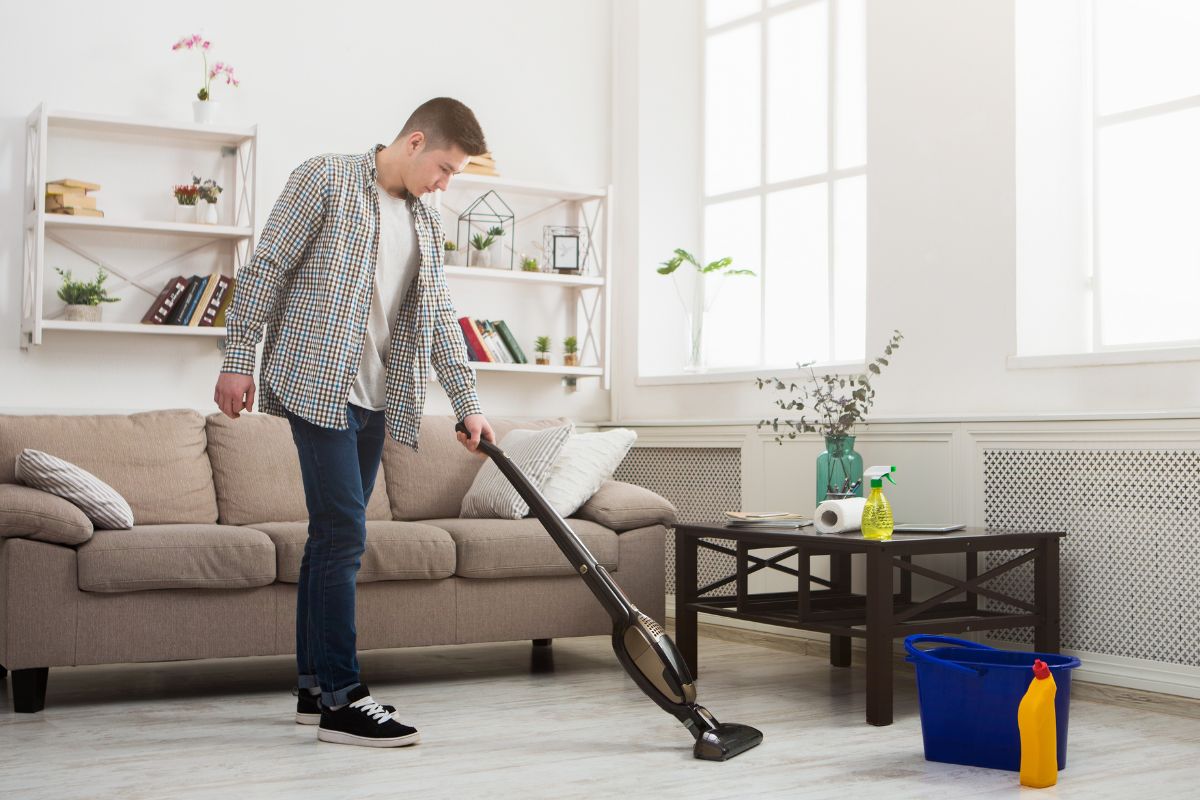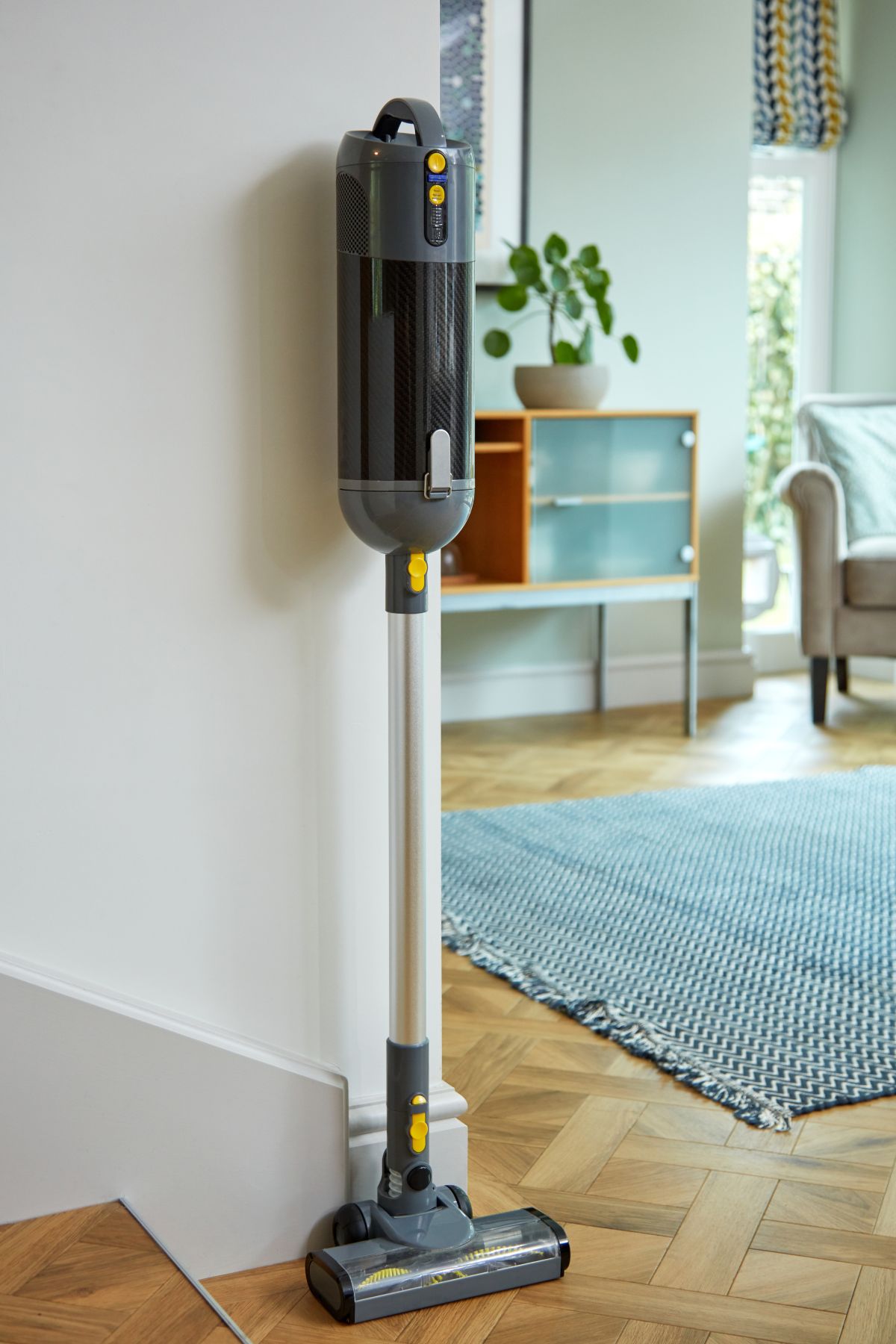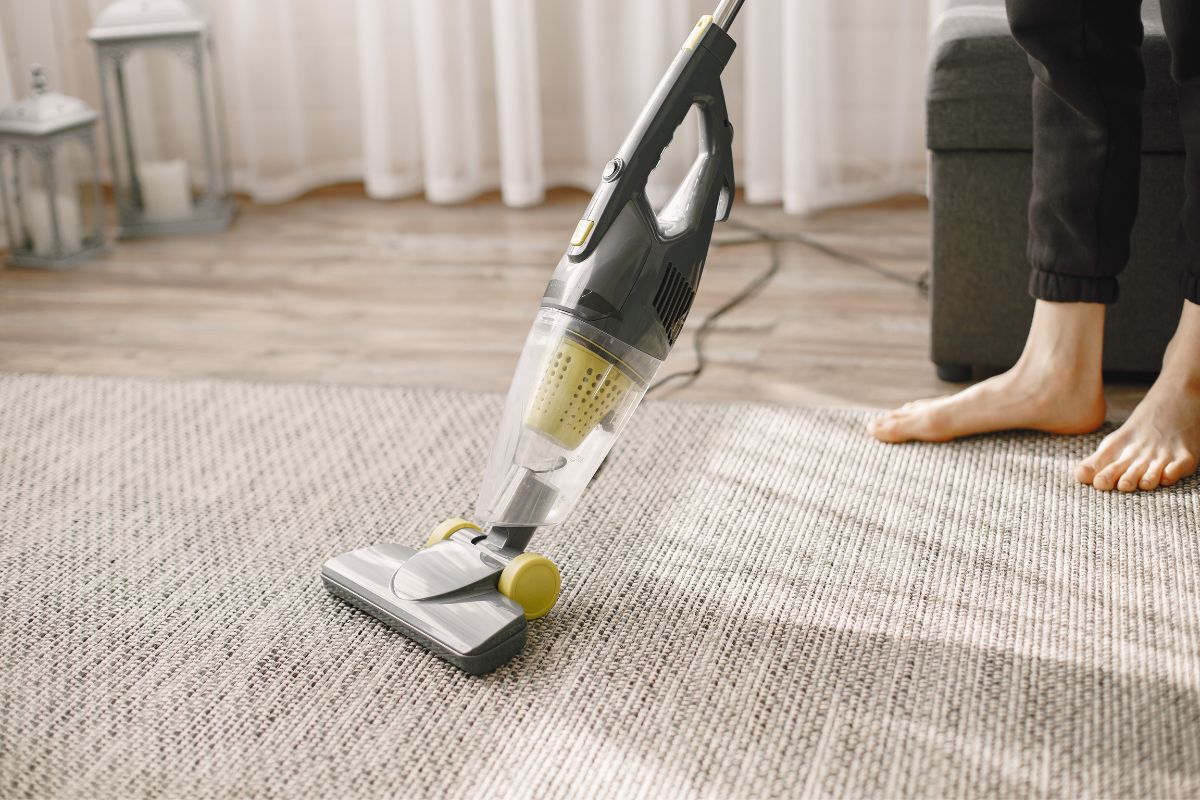A stick vacuum, also known as an upright vacuum, has become increasingly positive in recent years, largely due to their lighter weights, easy use, and convenience.
Switching from a traditional vacuum to a stick model can seem overwhelming; there are a lot of factors to consider – not least the number of stick vacuums on the market.
The type of vacuum you purchase depends on your budget, space availability, and other factors. To help you make your mind up, here are some of the key things to consider before purchasing a stick vacuum.
10 Things to Consider When Buying A Stick Vacuum
1. Wet Or Dry Vacuum?
The first thing to ask yourself is whether you want a wet or dry vacuum. Wet vacuums suck up water as well as dirt, while dry vacuums will only suck up dirt.
This will ultimately depend on your personal preferences, your lifestyle, and the materials in your home – but if you’re looking for a good all-round cleaner, then it’s worth considering an option that incorporated both wet and dry substances – this can be particularly useful if you have young children and need to clean up spills around the house!
2. Suction Power
Another important factor when choosing a vacuum cleaner is suction power. Suction power refers to how powerful the vacuum is at sucking up dust and debris.
It should be noted that the higher the suction power, the more likely you’ll find yourself with clogged filters and hoses, as the vacuum is pulling a greater amount of dirt and grime from your floors.
You may also notice that high suction powers can cause damage to delicate floor coverings such as rugs and carpets, so opt for a lower suction option if you have delicate antique rugs or flooring that is easily damaged.
As a general rule, stick vacuums tend to have lower suction powers than traditional models, but this is balanced by the advantages; they are easier to maneuver around furniture and are generally smaller and lighter.
If you are looking for something that has a higher suction power, then you might want to look into buying a traditional vacuum instead.
3. Filters
Stick vacuums usually come with replaceable filters, which means that you can simply pop them out and change them whenever necessary.
Filters are designed to trap particles of dirt and dust and are often made of paper or synthetic fibers.
As a result, changing your filter regularly will ensure that your vacuum remains effective and efficient, and so you need to ensure that you pick a vacuum that makes this task easy to complete.
It is also a good idea to check out the price of filters in advance, to ensure that they will be affordable when you are replacing them regularly.
You should also check to see whether the vacuum you choose comes with any specialist filters, such as though designed to collect pet hair.
These types of filters are typically much larger than standard ones, and so require more frequent replacement, but can be extremely valuable and save you time if you have lots of pets in your home, or family members who may suffer from allergies or asthma that can be made worse by pet hair.
In some cases, the right vacuum cleaner can be a real game-changer for the health and comfort of your family.

4. Noise Levels
While most people would prefer to live in a quiet household, noise levels are another important consideration when purchasing a vacuum cleaner.
While many stick vacuums produce less noise than traditional models, it is still important to note that some do create quite a bit of noise during use.
If you plan on using your vacuum frequently, then you may want to consider a quieter model, especially if you are sharing your home with others who may be distracted or distressed by the noise, or if you live in an apartment building and want to keep your neighbors on side!
5. Price
A key element to consider when shopping for a vacuum cleaner is price.
There are many different brands available today, and each one offers a range of features and benefits. Some offer better performance, others are cheaper to buy, and there are even those that are more eco-friendly.
In order to make sure that you get the best possible deal, it is always a good idea to shop around before making any purchases.
6. Capacity
Another important factor to consider when choosing a vacuum cleaner is capacity. This refers to the amount of space that the vacuum takes up, and whether or not it can hold enough dirt and debris for your needs.
For example, if you have large rooms, then you may want a larger capacity vacuum cleaner, as it will be able to handle the volume of dirt that you need to clean.
On the other hand, if you only have small rooms, then you may need a smaller capacity vacuum cleaner, as you’ll probably only require a small amount of cleaning at once.

7. Power
Power is another important aspect to consider when choosing a stick vacuum. Many stick vacuums are powered by rechargeable batteries, while others are connected to mains electricity.
The former option is obviously much more convenient, however, if you plan on using your stick vacuum regularly, then you should opt for a battery-operated model.
Otherwise, you may find yourself charging your vacuum every time you use it, which can become inconvenient after a while.
You will need to ensure that you have space to charge your vacuum between uses and that the model that you choose has enough power in each charge to cover the tasks that you need around your home.
8. Accessories
As well as considering the size of the vacuum itself, you should also take into account its accessories. Some stick vacuums come with bags, hoses, and brushes, while others include attachments such as crevice tools, floor cleaners, window cleaners, etc.
These accessories are useful additions to your vacuum, and you should try to choose a stick vacuum that includes these items in the box. You can also purchase additional accessories separately, such as a crevice tool, hose, brush, etc.
9. Warranty
You should look at the warranty offered by the manufacturer. Most manufacturers offer a minimum two-year warranty, although some go as far as offering five years.
However, it is worth noting that you cannot extend this warranty through an extended service agreement (ESA).
As well as providing peace of mind, warranties ensure that you receive quality products from reputable companies, and also help to protect consumers against faulty goods.
10. Size
Last but not least, you should also consider the size of the vacuum, and the space that you have available in your home.
You will need to make sure that the item you choose can be stored away neatly – some stick vacuum models fold away to a smaller size and are ideal if you have limited floor or storage space.
Final Thoughts
By considering all of the essentials, you will have all of the information you need to make a smart, informed decision, and choose the best stick vacuum cleaner for your home and needs.

